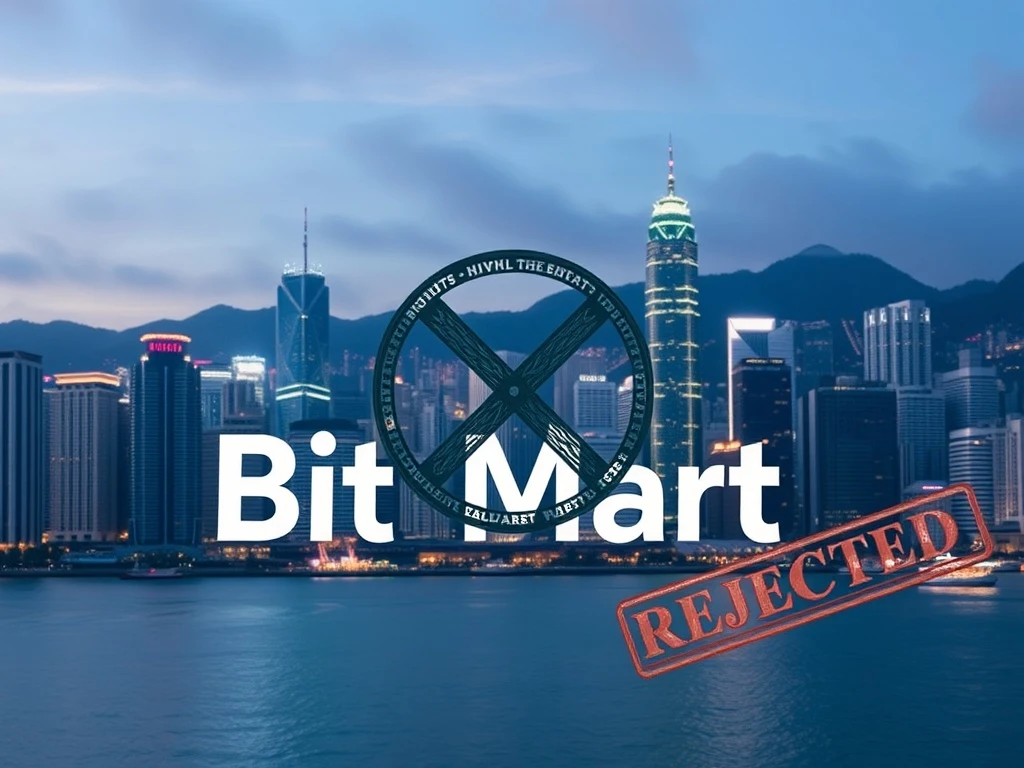BitMart Hong Kong’s Crucial VASP Withdrawal Reshapes Regulatory Landscape

The dynamic world of cryptocurrency regulation continues to evolve, especially in Asia’s financial centers. Recently, BitMart Hong Kong made headlines by withdrawing its application for a virtual asset service provider (VASP) license in Hong Kong. This significant move signals the ongoing challenges and stringent requirements faced by crypto exchanges operating in this ambitious jurisdiction.
BitMart Hong Kong Joins VASP Withdrawal Wave
Crypto exchange BitMart officially withdrew its application for a virtual asset service provider license in Hong Kong. The Securities and Futures Commission (SFC), Hong Kong’s primary financial regulator, confirmed this withdrawal on Thursday. This decision by BitMart Hong Kong is not an isolated incident. In fact, it follows a trend seen among several other major crypto trading platforms.
For example, Bybit, a prominent crypto exchange, submitted its application last year but subsequently withdrew it in late May 2024. Similarly, OKX and Gate.io also pulled their applications around the same time. These withdrawals occurred just before a crucial deadline. The local regulator had mandated the expulsion of all unlicensed platforms from the market. Consequently, the industry has observed a wave of exchanges re-evaluating their presence due to Hong Kong’s stringent requirements for local crypto operations.
Understanding Stringent Hong Kong Crypto Regulation
Hong Kong’s legal framework for virtual assets is robust and comprehensive. Laws explicitly require any centralized crypto platform operating within its territory, or marketing to local investors, to obtain a license from the SFC. This licensing process involves numerous strict conditions designed to protect investors and ensure market integrity.
Specifically, platforms must maintain liquid assets equivalent to at least 12 months of operational expenses. Furthermore, they need a minimum of 5 million Hong Kong dollars (approximately $641,490 USD) in paid-up share capital. Client asset security is also a top priority. Regulators mandate that 98% of client assets remain in cold storage, significantly reducing exposure to online threats. Transfers are also restricted to whitelisted addresses only, adding another layer of security. The SFC requires strict key management protocols. Moreover, insurance must cover 100% of hot storage holdings and 50% of cold storage holdings. New rules for crypto custody services, approved earlier this month, further tighten controls. These rules now explicitly ban reliance on smart contracts for cold wallet management, emphasizing traditional security measures.
Impact on VASP License Hong Kong Landscape
The rigorous requirements for a VASP license Hong Kong have undeniably shaped the local market. While some exchanges have withdrawn their applications, others have successfully navigated the process. To date, Hong Kong has awarded operational licenses to four crypto exchanges in 2025: PantherTrade, YAX, Bullish, and BGE. In total, 11 crypto exchanges currently operate as licensed entities in Hong Kong. This selective licensing process aims to foster a secure and compliant virtual asset ecosystem.
The stringent regulatory environment, while challenging for some, also signals Hong Kong’s commitment to becoming a leading, well-regulated financial hub for digital assets. It demonstrates a clear intent to differentiate itself from jurisdictions with more permissive, or less defined, crypto frameworks. This approach prioritizes long-term stability and investor confidence over rapid, unregulated growth.
Hong Kong’s Ambitious Vision as a Global Crypto Hub
Despite the recent withdrawals, Hong Kong remains steadfast in its ambition to become a premier global crypto hub. The city actively develops its rigorous crypto regulatory framework to support a thriving digital asset industry. This strategy leverages its established position as a global financial center. This forward-thinking approach is already yielding tangible results.
For instance, CMB International Securities Limited, a subsidiary of China Merchants Bank (CMB)—one of China’s top banks—recently launched a crypto exchange in Hong Kong. This move highlights growing institutional interest and confidence in Hong Kong’s regulated environment. Furthermore, Hong Kong regulators are also building a solid stablecoin regulatory base. The Hong Kong Monetary Authority finalized its regulatory framework for stablecoin issuers earlier this month. This framework, like the exchange rules, proved stringent enough to negatively impact some local firms. Analysts, however, described the initial sell-off and double-digit losses among some companies as a healthy market correction, adapting to higher standards.
Future Outlook for Crypto Exchanges Hong Kong
The landscape for crypto exchanges Hong Kong is undoubtedly evolving rapidly. The recent withdrawals, including that of BitMart, underscore the significant investment and commitment required to operate compliantly in the region. While some exchanges may find the regulatory hurdles too high, Hong Kong’s consistent efforts to build a robust framework aim to attract reputable and well-capitalized players.
This strategic approach positions Hong Kong as a jurisdiction prioritizing investor protection and market integrity. The city’s clear regulatory roadmap for both virtual asset exchanges and stablecoins suggests a future where only the most compliant and secure platforms can thrive. Therefore, for investors and businesses, understanding Hong Kong crypto regulation is paramount when considering engagement with this aspiring global crypto hub.







